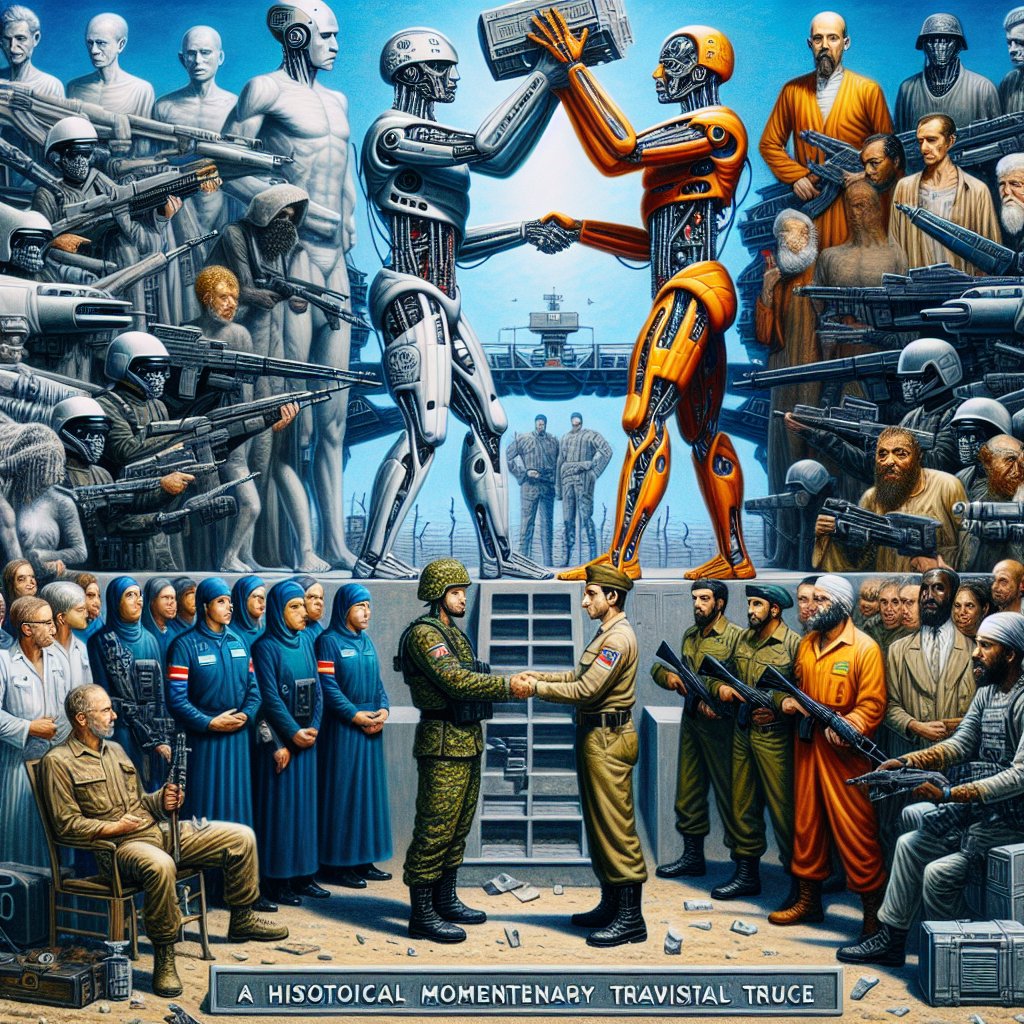Image created by AI
Historic US-Russia Prisoner Swap Heralds Return of Detainees Including Convicted Assassin
In an exchange redolent of Cold War era standoffs, Russia and the United States completed a landmark prisoner swap on Thursday, marking the most substantial exchange since the period's cessation. This swap, which involved the United States, Russia, and several European countries, saw the freeing of U.S. journalist Evan Gershkovich and former U.S. Marine Paul Whelan. The intricate deal involved the collaborative efforts of the White House, Germany, and other nations, operating under high confidentiality for over a year. The 24 detainees included in the exchange found 16 individuals moving westward from Russia's grip, while eight moved in the opposite direction.
Among the more controversial figures involved in the swap was Vadim Krasikov, known for his assassination of an exiled dissident in Berlin—a crime for which he was convicted by the German government. The bittersweet emotions of the swap were palpable as families reunited at Maryland's Joint Base Andrews in the company of President Joe Biden and Vice President Kamala Harris. Conversely, in Moscow, President Vladimir Putin personally greeted the returnees, promising them state honors.
Despite the transaction's historic significance and the diplomatic prowess it exhibited, it seems not to reset the strenuous ties between the U.S. and Russia, with Jon Finer, the U.S. deputy national security adviser, reaffirming the mistrust that still plagues relations. Critics argue that the exchange could embolden adversaries to take hostages, perpetuating a cycle of tit-for-tat diplomacy.
Notably, the returning Western detainees included individuals who stood outspoken against Putin's regime, such as Russian-British dissident Vladimir Kara-Murza and Russian opposition politician Ilya Yashin. These figures, widely recognized as political prisoners in the West, found themselves labeled as dangerous extremists by Moscow.
Overarchingly, the prisoner exchange does not signal an era of thawed relationships but does stand out as a shining moment in diplomatic achievement, particularly as it plays out against a backdrop of heightened tensions over Russia's involvement in Ukraine.










